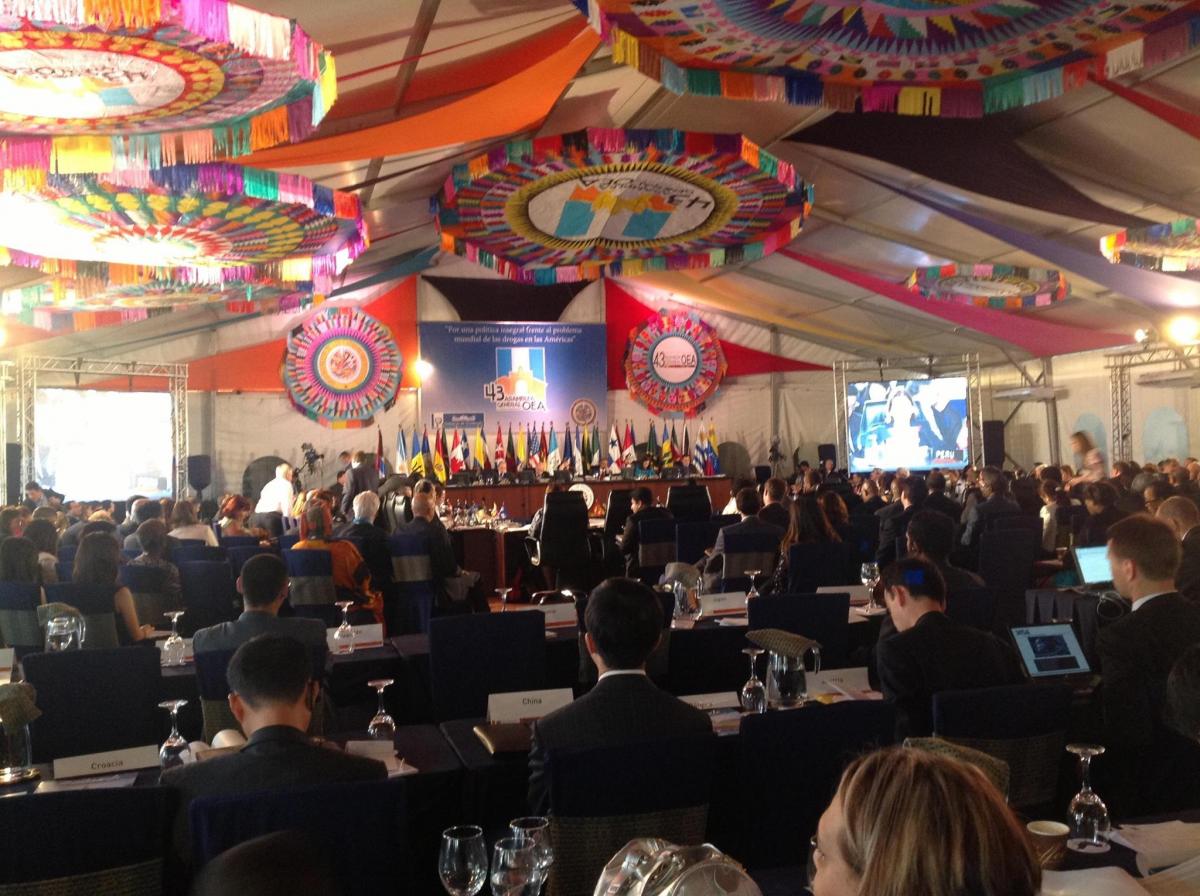 The 43rd General Assembly of the Organization of American States (OAS) concluded on Thursday, June 6, in the city of Antigua, Guatemala. The annual meeting of the foreign ministers of all of the countries of the Americas (except for Cuba) was especially relevant this year for several reasons. First, the main theme of the Assembly was regional drug policy,[1] a thorny issue that involves significantly different and even conflicting positions among the OAS Member States. Additionally, this meeting would gauge the States’ attitudes toward the reform of the Inter-American Human Rights System after two intense years of discussion, debates, proposals, reforms, and an Extraordinary General Assembly, held last March, which formally concluded the process of reflection on the Inter-American Commission on Human Rights (IACHR). It was also expected that the Assembly would discuss and pass a resolution to address the issue, although it was not known how; and, most importantly, three individuals would be elected at this Assembly to serve on the Inter-American Commission on Human Rights from 2014 to 2017.
The 43rd General Assembly of the Organization of American States (OAS) concluded on Thursday, June 6, in the city of Antigua, Guatemala. The annual meeting of the foreign ministers of all of the countries of the Americas (except for Cuba) was especially relevant this year for several reasons. First, the main theme of the Assembly was regional drug policy,[1] a thorny issue that involves significantly different and even conflicting positions among the OAS Member States. Additionally, this meeting would gauge the States’ attitudes toward the reform of the Inter-American Human Rights System after two intense years of discussion, debates, proposals, reforms, and an Extraordinary General Assembly, held last March, which formally concluded the process of reflection on the Inter-American Commission on Human Rights (IACHR). It was also expected that the Assembly would discuss and pass a resolution to address the issue, although it was not known how; and, most importantly, three individuals would be elected at this Assembly to serve on the Inter-American Commission on Human Rights from 2014 to 2017.
The countries that nominated candidates to the IACHR were Colombia and Mexico (for reelection), Brazil, Ecuador, The United States, and Peru. Those States campaigned quite energetically to promote their candidates. In order to make the process more transparent, the OAS held a public forum last May at its headquarters with all of the candidates, who made presentations and answered questions from representatives of the States and civil society. Notably, the Foreign Minister of Ecuador took particularly proactive steps in this regard. According to information on the website of Ecuador’s Foreign Ministry,[2] the Minister visited a good number of countries in the region during recent months to foster ongoing dialogue about the IACHR and the adoption of reforms to that body, and—we assume—also to promote his country’s candidate for the Commission. Together with Bolivia, Ecuador had pushed for a second conference of States Party to the American Convention on Human Rights, which was held in Cochabamba last May 14.
Ecuador had invested considerable time, resources, and personnel, and arrived at the General Assembly confident of the election of its candidate and support for its initiatives. But that did not happen: the Ecuadorian candidate was not elected, nor was the draft resolution introduced by Ecuador passed.
Read the full article here.
[1] The exact theme of the meeting was: “For a Comprehensive Policy Against the World Drug Problem in the Americas”





